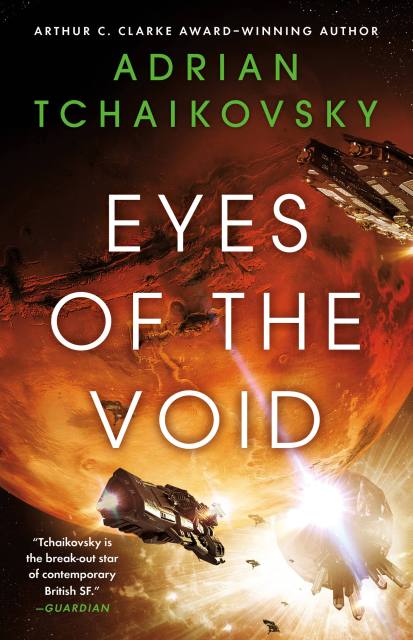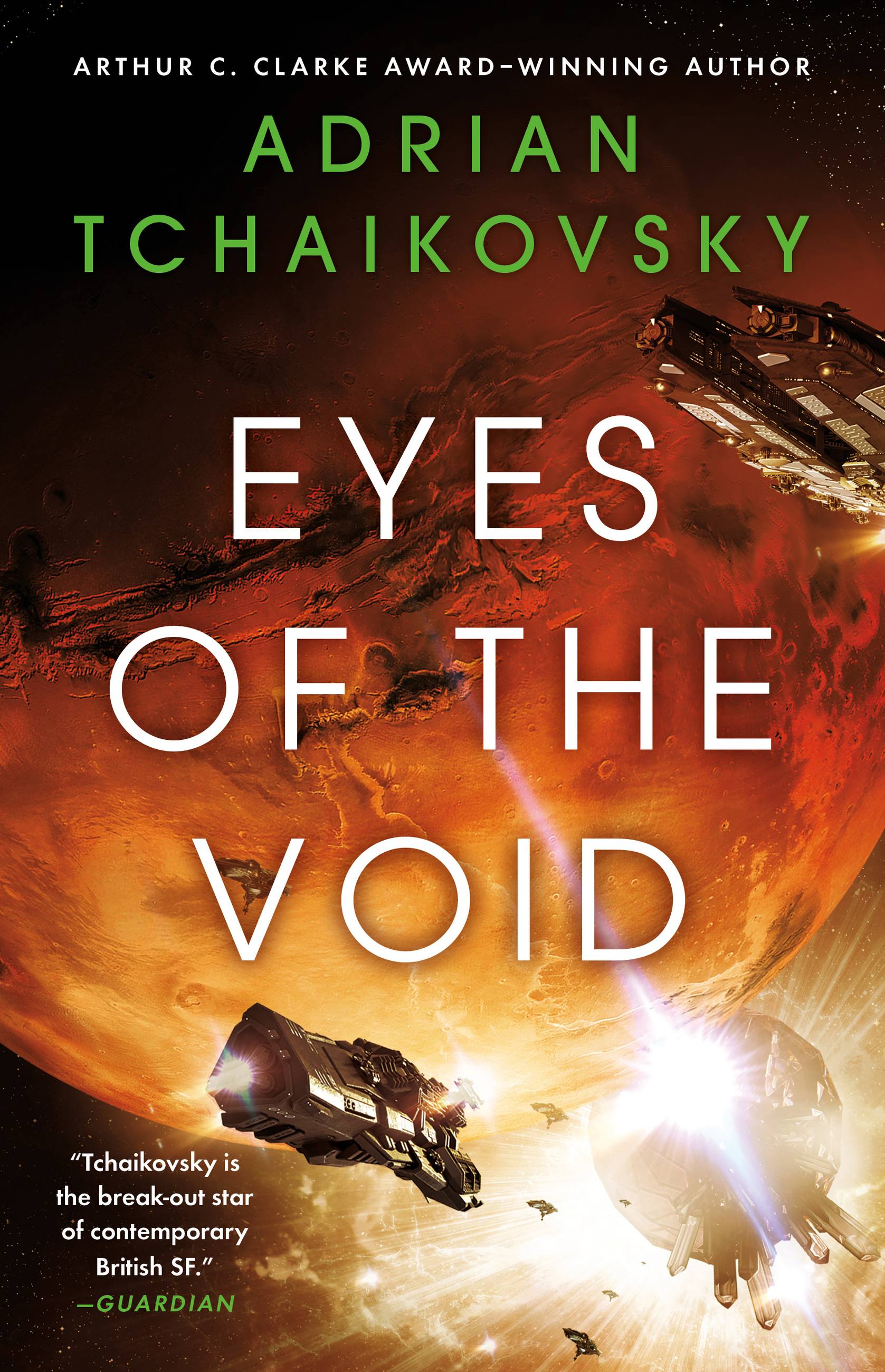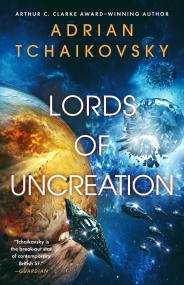Eyes of the Void
Contributors
Formats and Prices
Price
$21.99Format
Format:
- Trade Paperback $21.99
- ebook $9.99
- Hardcover $30.00
- Audiobook Download (Unabridged) $44.99
This item is a preorder. Your payment method will be charged immediately, and the product is expected to ship on or around November 22, 2022. This date is subject to change due to shipping delays beyond our control.
Also available from:
The Arthur C. Clarke award-winning author of Children of Time brings us the second novel in an extraordinary space opera trilogy about humanity on the brink of extinction, and how one man's discovery will save or destroy us all.
After eighty years of fragile peace, the Architects are back, wreaking havoc as they consume entire planets. In the past, Originator artefacts – vestiges of a long-vanished civilization – could save a world from annihilation. This time, the Architects have discovered a way to circumvent these protective relics. Suddenly, no planet is safe.Facing impending extinction, the Human Colonies are in turmoil. While some believe a unified front is the only way to stop the Architects, others insist humanity should fight alone. And there are those who would seek to benefit from the fractured politics of war – even as the Architects loom ever closer.
Idris, who has spent decades running from the horrors of his past, finds himself thrust back onto the battlefront. As an Intermediary, he could be one of the few to turn the tide of war. With a handful of allies, he searches for a weapon that could push back the Architects and save the galaxy. But to do so, he must return to the nightmarish unspace, where his mind was broken and remade.
What Idris discovers there will change everything.
Series:
-
"Tchaikovsky’s artistry is focusing on a few key, well-wrought characters facing impossible odds in keeping Idris safe while allied races turn against each other. This is space opera on the grand scale of Alastair Reynolds and Stephen R. Donaldson, leavened by humor and remarkable world building."Booklist
-
"Tchaikovsky again shines with his suspenseful second Final Architecture space opera (after Shards of Earth)....Tchaikovsky’s intelligent worldbuilding captures the essence of classic space opera, with an intricate plot that whisks readers along on a humorous, sometimes convoluted, but always memorable adventure. Series fans will be eager for more."Publishers Weekly
-
"[Tchaikovsky's] inventive world-building gets a chance to shine."Polygon, "The Best Science Fiction and Fantasy Books of 2022"
-
Praise for The Final Architecture:“Enthralling, epic, immersive, and hugely intelligent.” —Stephen Baxter--
“Adrian Tchaikovsky: king of the spiders, master worldbuilder, and asker of intriguing questions. His books are packed with thought-provoking ideas (as well as lots of spiders; did I mention the spiders?). One of the most interesting and accomplished writers in speculative fiction.” —Christopher Paolini
“Adrian Tchaikovsky’s Shards of Earth is one of the most stunning space operas I’ve read this year....Tchaikovsky’s world building is on glorious display as he throws all manner of spaceships, creepy aliens and strange technology into a delicious sci-fi soup. It’s dense, it’s funny, it’s exciting, it’s touching and it’s perfect for someone looking for a space opera built on a grand scale.” —BookPage (starred review)
“Dazzlingly suspenseful...Tchaikovsky’s intricately constructed world is vast yet sturdy enough to cradle inventive science, unique aliens, and complex political machinations. With a mix of lively fight scenes, friendly banter, and high-stakes intrigue, this is space opera at its best.” —Publishers Weekly (starred review)
“Tchaikovsky writes space opera on a grand scale, creating a massive, complex, vividly realized future environment...He guides the reader through this endlessly intriguing universe with a rock-steady sure hand. Fans of space opera should leave the book in breathless anticipation of the second installment in the trilogy.” —Booklist
- On Sale
- Nov 22, 2022
- Page Count
- 656 pages
- Publisher
- Orbit
- ISBN-13
- 9780316705912
By clicking 'Sign Up,' I acknowledge that I have read and agree to Hachette Book Group’s Privacy Policy and Terms of Use









